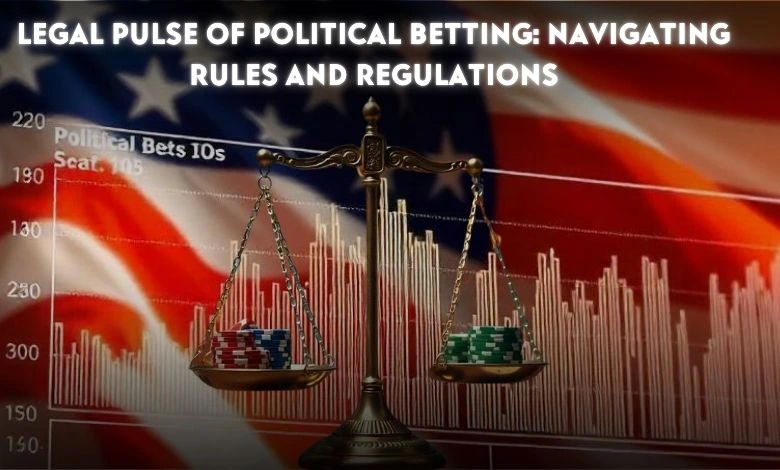
The Legal Pulse of Political Betting: Navigating Rules and Regulations
Political betting involves wagering on different political events taking place around the world. The activity has suddenly gained enormous traction, especially after the rise of legal political betting sites and high-stakes political events, including the 2024 US Presidential Election and Brexit.
Betting on politics is growing exponentially due to its unpredictable nature, which offers plenty of trading potential. Unlike sports, political betting markets are traded on a regular news flow. But they do not have any scores until the voting polls close.
Many countries are joining the world to fully allow betting on political outcomes, but the legal complexities have led to a lot of confusion among interested players. Therefore, it is important to understand the legal landscape for all the parties involved, including participants, regulators, and platforms.
In this article, we will discuss the legal and political scenario by region, the loopholes or gray areas of legal and political betting, and how technological advancements have impacted this realm.

Table of Contents
Legal Political Betting Status by Region
United States Status (as of 2025)
The Professional Amateur Sports Protection Act (PASPA) was signed to regulate the political betting landscape in the United States. It banned states from operating, regulating, authorizing, and sponsoring sports and political betting. However, the “grandfather” provisions allowed current forms of state-authorized betting to continue in the following states – Nevada, Oregon, Delaware, and Montana. PASPA essentially covers online and land-based sports and political betting. The Supreme Court decided to strike down PASPA while the Wire Act imposed different provisions that make the entire legal landscape unclear whether states are allowed to promote and offer online political betting sites. Moreover, the Commodities Futures Trading Commission (CFTC) plays an important role in political betting as it protects participants from manipulation, fraud, and common abusive practices on these platforms.
United Kingdom Status (as of 2025)
The UK Gambling Commission is a regulatory body that looks after gambling and the interests of the wider public in the UK. Under the Gambling Act 2005, no participant is allowed to cheat at gambling or enable an environment for another person to do so. All political betting platforms licensed by the UK Gambling Commission under the Gambling Act 2005 must report suspected offenses and carry out due diligence on the wagering of politically exposed individuals. Regulated bookmakers in the UK, such as Ladbrokes and Betfair, make sure that punters can bet on political events without breaking any rules and regulations in the country and withdraw their winnings as securely and conveniently as possible.
Europe & Other regions (as of 2025)
The regulatory framework for political betting across Europe is not governed by any single entity covering that region. Instead, many countries have national regulations for the legal issues surrounding political betting.
Within Europe, rules and regulatory practices differ; hence, not all political bookmakers are subject to the same regulatory measures. This means punters can enjoy some advantages to using regulated or licensed websites in a stricter jurisdiction. For instance, in Spain and Germany, online political betting sites are subject to regulation at the local and state levels; in the Netherlands, platforms are regulated by the Dutch Gaming Authority, while there is no such regulatory framework that currently exists in Ireland.
Political betting is treated differently in different countries. For instance, licensed operators and authorities offer betting on sports and political events in Australia. In Canada, political betting is entirely legal, and many online betting sites offer election betting to registered users.
Grey Areas of Legal Political Betting
- Regulating offshore betting platforms presents many difficulties, leading to a lack of consumer protection and reduced tax revenue from gambling and betting.
- The rise of offshore betting platforms calls for more stringent legal implications to reduce the risk of money laundering and other challenges that come with unregulated markets.
- Many countries are debating whether political betting constitutes gambling or speculation, while others are trying to conclude that betting on elections needs to be banned as it poses too great a risk for both operators and players.
- Bookies take advantage of certain legal loopholes or gray areas in legal political betting. For instance, the Public Gambling Act of 1867 prohibits betting in public places but does not specifically address online betting.
- Similar regulations are still in place in many countries where the gap in regulations has enabled unscrupulous bookies and operators to thrive with illegal websites and apps, enticing players to bet on political events and sports.
Technological Advancements in Legal Political Betting
While concentrating on the legal aspects, many of us do not see how technological developments are changing the political betting landscape.
- The implementation of blockchain tech has made a profound impact in the world of political betting, where many operators are accepting different digital currencies and cryptocurrencies as a form of payment.
- Blockchain technology has presented a unique challenge to the regulatory framework as the decentralized transactions with cryptocurrencies have enabled players from different parts of the world, even in regions where betting is restricted, to participate in offshore political betting.
- The availability of blockchain betting platforms has resulted in an increase in political betting, especially during high-stakes elections such as the 2024 US Presidential Election or the Brexit event.
Conclusion
While political betting markets offer plenty of opportunities for punters with significant odds created by market volatility, every participant must understand the legal complexities surrounding political betting in their country. Countries have taken different approaches toward legal political betting, and the rules vary significantly in the United States, the United Kingdom, Europe, and other emerging markets. Therefore, this requires a keen understanding of the ongoing regulatory adaptation in the face of the growing interest in political betting and to make sure that the punters choose licensed and regulated betting political sites and place safe wagers on political events.
FAQs
Is political betting legal in the United States?
Political betting may not be a legal activity if you are using a sportsbook in the US. However, platforms that facilitate political betting from an offshore platform can be used to place wagers on events.
Are there gray areas in political betting?
There are certain gray areas for political betting, full of uncertainty and confusion for any average punter. While many countries have prohibited betting in public places, there is no mention of online political betting, which leads to legal loopholes.
Why is understanding the legal landscape important for political bettors?
It is important for punters to approach political betting responsibly and learn about the regulatory landscape in their jurisdiction before registering on any legal political betting site.
How has technology impacted political betting laws?
Technologies like Blockchain and cryptocurrencies have made it easier for punters to place their wagers using cryptocurrencies. This is because the decentralized nature of crypto does not require any intermediaries like the government or financial institutions to interfere with the transactions made online.









